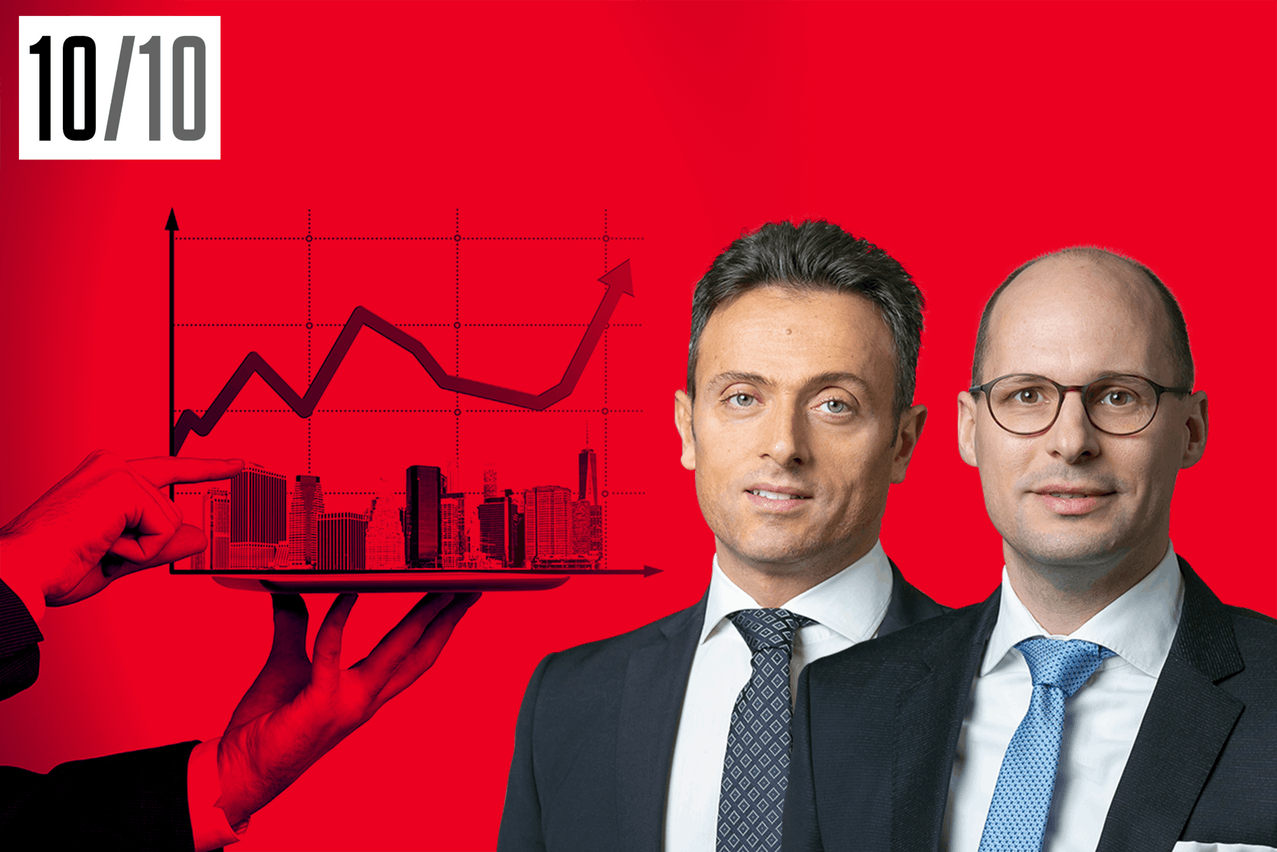What impact did COVID-19 have on the real estate market in 2020?
Christoph Schmitt: COVID-19 brought about exceptional challenges for investors. Real estate volumes initially slumped as the initial shock of lockdowns and social distancing shifted investor appetite. But the market rebounded towards the end of the year as confidence crept back, although not all sectors were affected uniformly. For example, logistics and residential property have actually benefitted from the pandemic as more people work from home. On the flip side, retail and hospitality have been hit hard. Corporates and infrastructure are also experiencing a sharp fall in office utilisation rates. Overall, the real estate market has proven to be resilient and remains a stable asset class for investors.
What is the outlook for European real estate in 2021?
Livio Gambardella: It is clear the pandemic will continue to influence investor confidence this year. The measures taken by European governments to contain the spread of the virus and the consequent increase of the unemployment rate will affect the European economy. Meanwhile, yields have fallen, return expectations are modest and the general view on profitability for 2021 has declined somewhat despite an abundance of the liquidity in the market. While the short-term view is characterised by uncertainty, the medium-term outlook looks very promising.
What are the key future trends that will drive the real estate market?
Christoph Schmitt: COVID-19 has accelerated some structural changes that were already underway before the pandemic. Three global trends will continue to drive this transformation. Firstly, increased uncertainty has strengthened investor demand for more due diligence and investors are increasingly looking for innovative solutions that provide transparency. Technology will play a vital role here.
COVID-19 has accelerated some structural changes in the real estate market that were already underway before the pandemic. Three global trends will continue to drive this transformation.
Secondly, the European Green Deal will shake up rules on energy efficiency standards. Buildings are responsible for approximately 40% of energy consumption and 36% of the greenhouse gas emissions in the EU. The EU Commission has established legislation that will require sustainable refurbishment of existing buildings. The measures present challenges, but also provide great opportunities for real estate investors.
Thirdly, COVID-19 has increased demand for impact investments. Impact investing aims to generate a positive, measurable social and/or environmental impact alongside a financial return. The sector is expected to grow rapidly as institutional investors deploy more capital.
How do you see the real estate sector evolving in Luxembourg?
Livio Gambardella: Despite the challenges presented by the pandemic, Luxembourg’s real estate sector is in good shape. Investor appetite for Luxembourg properties is increasing and the country remains a popular jurisdiction for investors that want to structure and place their real estate funds here.
The overall outlook for 2021 is positive, thanks to Luxembourg’s resilient economy, low interest rate environment, high market liquidity and demographic growth, compared to other European countries.
Although many people will continue to telework this year, companies are unlikely to significantly reduce their office space and instead repurpose it, with little to no impact on vacancy rates. The residential market will benefit from low interest rates and ample liquidity, which attracts interest from a broad range of investors. Logistics and data centres will see a further increase in demand, while retail property will struggle. The rise of e-commerce, lockdown measures in neighbouring countries and a general reluctance from landlords to revise their rents will present further challenges for the retail market.
Despite the challenges presented by the pandemic, Luxembourg’s real estate sector is in good shape. Investor appetite for Luxembourg properties is increasing and the country remains a popular jurisdiction for investors.
How can BDO help clients navigate through regulatory and market changes?
Livio Gambardella: Keeping abreast of market trends and regulatory changes in today’s constantly evolving environment is never easy. Each investor has their own strategy and must be equipped to react to future developments. BDO Luxembourg’s real estate industry experts are ready to guide you every step of the way.
Christoph Schmitt: We offer our clients professional advice combined with specialised industry knowledge and expertise. In addition to the classic audit, tax and corporate services BDO built its heritage upon, we can also assist with valuation, fund administration, regulatory and AML compliance services.


